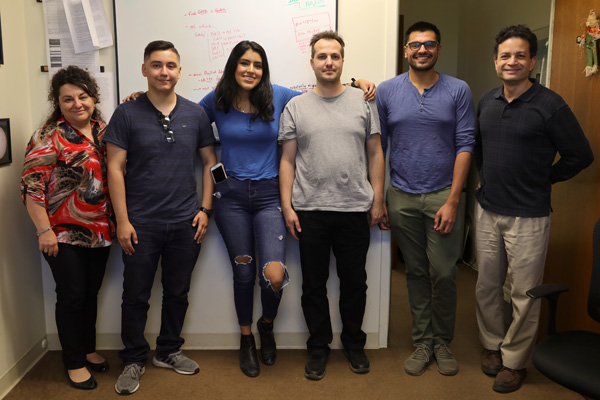

Join our team!
Contact Prof. Maduro (mmaduro@ucr.edu).
Undergraduates
Undergraduate research is a great way to add to your experience as a Life Science Major at UCR. Some of our undergrads end up as authors on publications.
During the academic year: We have had many undergraduates work with us during the academic year. Projects involve working with nematodes, DNA manipulation (PCR and cloning), microscopy, and digital imaging. Qualifications: Life Science Major (e.g. CMDB, Biology, or similar); GPA >3.5; sophomore year or later, have taken BIOL 020 (Dynamic Genome) or have experience with molecular biology (PCR, gel electrophoresis) and microscopy; willingness to work at least six hours per week. Students can work on a volunteer basis or receive credit towards their degree. Others apply through UCR's MARCU-STAR program for multi-year paid research that trains students to apply for PhD programs.
Summer research: Our research grant has money allocated for us to be able to hire three to four summer students to do paid research over the summer. We have also had student volunteers who then continue to work in the lab during the academic year. Students with a GPA (>3.5) are encouraged to apply for RISE fellowships, which are paid 10-week summer research opportunities.

Graduate Students (PhD and MS)
Our research involves molecular genetic characterization of gut specification pathways in Pristionchus and Caenorhabditis nematodes (see Research). Techniques include microscopy, fluorescence imaging, making transgenes, and genetic manipulation of nematodes using CRISPR/Cas9. Students interested in working towards a PhD or MS degree will likely apply to (or be in) the Cell, Molecular and Developmental Biology (CMDB) or Genetics, Genomics and Bioinformatics (GGB) Graduate Programs.
